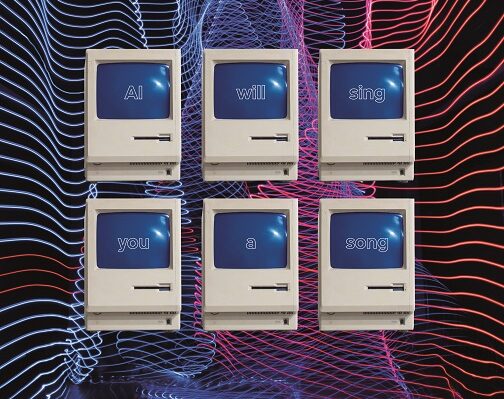07.04.2021 - 15:40
|
Actualització: 07.04.2021 - 17:40
Can computers write better songs than humans? After the Eurovision Song Contest was cancelled due to the pandemic, the AI Song Contest was launched last year to act as a replacement, whilst also attempting to explore the creative process of artificial intelligence.
Set up in 2020 by Dutch public broadcaster VPRO, together with NPO Innovation and NPO 3FM and with the help of European Broadcast Union (the organiser of the Eurovision Song Contest), the competition returns for its second year outside from Eurovision, this time with a team from Catalonia.
Teams from around the world use AI to put forward a submission which is performed and then judged by a jury and international public. The best song is then voted upon and a winner is announced, Australia being last year’s winner with “Beautiful the World”.
Interdisciplinary team
Catalan News spoke to Tomas Nihlen, part of the group representing Catalonia and Joel Cava, in charge of marketing, about the contest. “The idea is a project within which we try and experiment what the musical process, combining humans and machines, might be,” said Cava. However, he highlights that this technique is distinctly different to just involving computers and technology in music-making.
“We tried to keep the ‘human print’ as small as possible last year”, said Cava. He insisted that all of the submissions are made with a “solid base of artificial intelligence with minimal interference” although he admits that “it’s inevitable that in the musical process there will be human influence.”
To combat this new challenge, creative and organiser Tomas Nihlen explains that the team is “really interdisciplinary, as we have data scientists, AI experts, music producers, singing psychologists, we have a dancing violinist that is also a sign language expert, we have two authors, and other influential AI people.”
However, Nilhen has another ambition that he aims to work on with the AI Song Contest: “The whole reason why I thought it was a great idea to enter the contest was to show the Catalan language in that context, because when I talk to people a lot of people think that Spanish is the language that they associate with the future and technology… I wanted to show that Catalan can also be a part of this new innovative scene.”
Teams now have 6 weeks to compose their submissions with AI, with the winner being announced in June.


